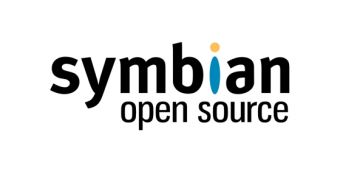The Symbian Foundation announced on Tuesday that it had reached a new milestone in its move towards making the Symbian operating system open source with releasing the platform microkernel (EKA2) and with support for the development kit under the Eclipse Public License (EPL). According to the Foundation, the release of the kernel comes nine months before the original schedule, and shows the positive momentum behind the OS' migration plans.
The move has started with the release of security code under EPL, and the Foundation has managed to make available in open source 16 out of a total 134 platform packages ever since. Symbian’s real-time microkernel is considered to be the heart of the platform, as it is in charge with the management of all system resources and frameworks on which all processes and applications are based. The Symbian Foundation is delivering a full development kit, free of charge, aimed at offering the community the possibility to take full advantage of the open source kernel.
“The release of the microkernel demonstrates three vital, guiding principles of the foundation: first, the commitment of many community members to the development of the platform – in this case, Accenture, ARM, Nokia and Texas Instruments Incorporated (TI) all made contributions; second, progress in fulfilling our commitment to a complete open source release of Symbian; and third, a tangible example of providing the most advanced mobile platform in the world,” Lee Williams, executive director, Symbian Foundation, said.
The complete kit is available for download here, and it includes the open source kernel and other complementary packages, as well as ARM’s high-performance RVCT compiler toolchain (RVCT4.0), which come free of charge for developers and companies that have less than 20 employees, an open source simulation environment based on QEMU, an open source base support package for the low-cost Beagle Board, binaries and a hardware execution environment.
“We are delighted to see Symbian Foundation achieve this milestone in its migration to open source. Symbian has always taken full advantage of leading edge ARM processors increasing the performance and feature set of mobile handsets,” John Cornish, executive vice president and general manager, System Design Division, ARM, added. “It is essential that developers have access to the best tools which is why we have partnered with Symbian to enable widespread development using the ARM compiler toolchain. We are also pleased to join the Architecture Council of the Symbian Foundation and contribute to the long term success of the Symbian platform.”

 14 DAY TRIAL //
14 DAY TRIAL //